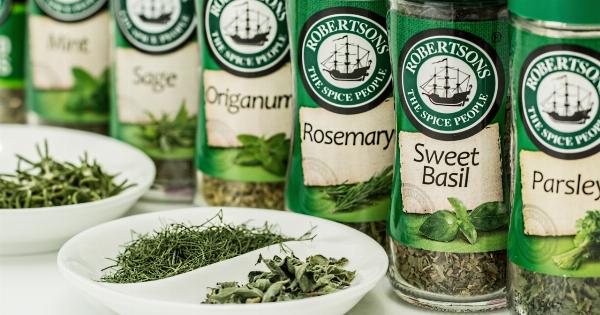Kidney failure is a serious health condition that occurs when your kidneys lose the ability to filter waste and extra fluid from your blood.
This can lead to a buildup of toxins in your body and cause a range of symptoms, including swelling, fatigue, abdominal pain, and difficulty breathing. Unfortunately, kidney failure is becoming increasingly common among adults in the United States, with more than 700,000 people currently living with the condition.
The Role of Diet in Kidney Health
Your diet has a significant impact on your kidney health. In fact, certain dietary habits have been linked to an increased risk of kidney failure.
This includes consuming too much sodium, protein, and fat, as well as not getting enough fiber, fruits, and vegetables.
The Problem with High Sodium Diets
Sodium is a mineral that helps regulate fluid balance in your body. However, consuming too much sodium can lead to high blood pressure, which is a major risk factor for kidney failure.
This is because high blood pressure can damage the blood vessels in your kidneys, making it harder for them to filter waste and fluid from your blood.
In addition, a high sodium diet can also increase your risk of developing kidney stones. Kidney stones are hard, mineral deposits that can form in your kidneys and cause pain, nausea, and difficulty urinating.
The Risks of Consuming Too Much Protein
Protein is an important nutrient that helps build and repair tissues in your body. However, consuming too much protein can also put a strain on your kidneys.
This is because your body needs to work harder to break down and excrete the waste products that are produced when you digest protein.
Over time, this can lead to kidney damage and an increased risk of kidney failure.
In fact, a study published in the Journal of the American Society of Nephrology found that people who consumed high levels of protein were 40% more likely to develop kidney failure than those who consumed lower levels of protein.
The Connection Between Fat and Kidney Failure
Research has also shown that a diet high in fat can increase your risk of kidney failure. This is because a high fat diet can lead to obesity and high blood pressure, which are both major risk factors for kidney damage.
In addition, a high fat diet can also contribute to the formation of kidney stones. This is because fat can bind with calcium and other minerals in your urine, leading to the development of hard, mineral deposits in your kidneys.
The Importance of Fiber, Fruits, and Vegetables
In contrast to high sodium, protein, and fat diets, a diet rich in fiber, fruits, and vegetables may actually help protect your kidneys from damage.
Fiber is important because it can help regulate blood sugar levels and cholesterol levels, which are both major risk factors for kidney damage.
In addition, fruits and vegetables are rich in antioxidants, which can help reduce inflammation in your body and protect your kidneys from damage.
How to Protect Your Kidney Health
If you want to reduce your risk of kidney failure, there are several steps you can take to protect your kidney health:.
- Reduce your sodium intake by avoiding processed foods and adding less salt to your meals
- Eat a balanced diet that includes plenty of fiber, fruits, and vegetables
- Limit your protein intake to no more than 1 gram per kilogram of body weight per day
- Avoid foods that are high in fat, such as fried foods, processed meats, and full-fat dairy products
- Drink plenty of water to help flush toxins from your system
- Maintain a healthy weight by exercising regularly and avoiding sugary drinks and foods
Conclusion
Your diet plays a crucial role in your kidney health.
Consuming too much sodium, protein, and fat can increase your risk of kidney failure, while consuming a balanced diet that includes plenty of fiber, fruits, and vegetables can help protect your kidneys from damage.
By making the right dietary choices and taking steps to support your kidney health, you can reduce your risk of kidney failure and enjoy better overall health and well-being.































